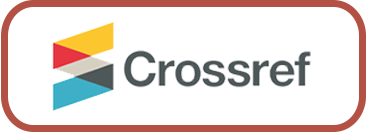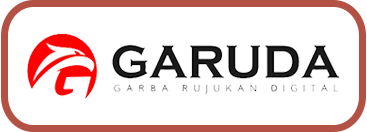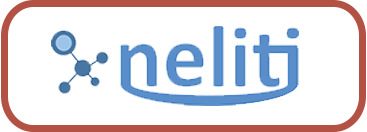FROM SOCIAL CHARITY TO STRATEGIC INVESTMENT: Reorientation of Waqf Utilization From Maqâsid Al-Shari'ah Perspective in Lhokseumawe
Abstract
This study examines the reorientation of waqf utilization from a traditional social charity approach toward strategic investment from maqâsid al-shari'ah perspective. The transformation of contemporary waqf reflects a shift from charity-oriented practices to an investment-driven model. This research employs a qualitative field method, with data collected through interviews and participatory observation. Data analysis is conducted using As-Syatibi's maqâsid al-shari'ah framework. The findings reveal that the five pillars of maqâsid al-shari'ah provide an effective framework for assessing the productivity and socio-economic impact of waqf utilization. The maqâsid-based approach enables the integration of Islamic spiritual values with community economic empowerment. This study concludes that incorporating maqasid principles into waqf management can optimize the potential of national waqf assets as a driver of sustainable economic development. Therefore, the development of productive waqf models oriented toward strategic investment while maintaining Sharia values is strongly recommended.
Keywords: Islamic economics, maqâsid al-shari'ah, productive waqf, strategic investment, sustainable development
Full Text:
PDFReferences
BWI. "Undang- Undang Republik Indonesia ‘Undang- Undang Tentang Wakaf (Nomor41Tahun2004),." Bwi.Go. Id, 2004.
Faizah, Umi. "Lembaga Filantropi Islam Dalam Peningkatan Ekonomi Ummat." RJABM (Research Journal of Accounting and Business Management) 8, no. 1 (2024). https://doi.org/DOI?: 10.31293/rjabm.v8i1.7860.
Falikhatun, Maria Elerina Douk Tunti. "Ekuitas: Jurnal Pendidikan Ekonomi." Bibliometric Analysisof Rural Tourism and Sustainable Development Goals 10, no. 2 (2022): 437-51.
Guba, YS Lincoln and EG. Naturalistic Inquiry (SAGE Publications, 1985, 1985.
al-Murdawi, Ala'u Ad-Dîn Abî Hasan ‘Alî ibn Ahmad al-Murdawi As-Sa‘îdî. Al-Inshaf fi Ma‘rifati Ar Râjihi Min Al Khilãfi Alâ Mazhab Al Imâm Ahmad Ibn Hanbal, Juz Vii,. Juz iv. Beirut-Libanon: Dâr Al Kutul Al ‘Ilmiah, Beirut. 1997 M/ 1417 H, 1997.
Hasbulah, Muhamad Husni, and Mohd Sollehudin Shuib. "Systematic Literature Reviews on Application of Cash Waqf in Islamic Finance." International Journal of Islamic Thought 28 (2025): 104-20. https://doi.org/10.24035/ijit.28.2025.338.
Imãm Abi Qãsim Abdul Karim Ar-Rafi'i Al-QazwainiAs-Syafi'i, Al-‘Aziz. Syarh Al- Wâfi Al- Ma‘rûf Bi Al-Syarhi Al-Kabir Juz Vi, 1998.
Karimah, Diva Azka, Mohammad Bintang Pamuncak, Muhammad Khoerul Mubin. "The Role of Waqf in Supporting Sustainable Development Goals: Linking Theory and Its Practices." Suhuf 35, no. 2 (2023). https://doi.org/https://doi.org/10.23917/suhuf.v35i2.23018.
Khamim, Muthiah Hijriyati, Ibnu Hajar Ansori, and Mohammad Hamsa Fauriz. "Livelihood Responsibility Shifting to Migrant Worker Wives; A Reading of Qur'an and Hadith in Muslim Community." Al-Ihkam: Jurnal Hukum Dan Pranata Sosial 19, no. 2 (2024): 574-602. https://doi.org/10.19105/al-lhkam.v19i2.11109.
Kuwait, Mentri Wakaf. Mausua'h Fiqhiyah Juz 44,. Juz 44. Kuwait: (Mentri Wakaf Kuwait, 1983.
Lhokseumawe, Kantor Kementrian Agama Kota. "Tanah wakaf dalam wilayah Kementrian Agama Kota Lhokseumawe Tahun," n.d.
Lhokseumawe, Yayasan Ma'had Ulumuddin Uteunkot Cunda Kota. "Buku Profil Dayah Ulumuddin Tahun 2011," 14. Uteunkot- Lhokseumae, 2011.
Malahayati, Marissa, and Lukytawati Anggraeni. "Islamic Waqf: A Tool for Sustainable Forest Conservation and Livelihoods in Indonesia." In Islamic Financial Markets and Institutions: Challenges, Financial Stability, and Inclusivity, edited by Farhad Taghizadeh-Hesary, Hassanudin Mohd Thas Thaker, M Ishaq Bhatti, and Anwar Allah Pitchay, 275-99. Singapore: Springer Nature Singapore, 2025. https://doi.org/10.1007/978-981-96-8650-6_13.
Maulida, Muhammad Tricahyo Permadi Ifa Hanifia Senjiati, Ira Siti Rohmah. "Analisis Kompetensi Nazhir Terkait Penggunaan Wakaf Uang Sebagai Instrumen Dana Pembangunan Infrastruktur Dalam Bentuk Surat Berharga Syariah Negara: Literature Review." Sharia Economic Law 2, no. 2 (2022): 66-161. https://doi.org/https: // doi.org/ 10.29313/ bcssel.
Mohammad, Mohammad Tahir Sabit Haji. "Maqa?id Al-Shari'ah and Waqf: Their Effect on Waqf Law and Economy." Intellectual Discourse 26, no. 2 SE-Articles (December 21, 2018): 1065-1091. https://doi.org/10.31436/id.v26i2.1257.
Muh Luqman Arifin, Rofiq Nurhadi, and Ida Zahara Adibah. ""Filantropi Islam Dan Kristen: Studi Komparatif,." SALIHA: Jurnal Pendidikan & Agama Islam 6, No. 1 (2023) 6, no. 1 (2023). https://doi.org/https: // doi.org/ 10. 54396/ saliha. v6i1. 535.
Nisa, Fivin Choerotun, Fahmi Medias, Andi Triyanto. "Opportunities and Challenges of Waqf Management in Indonesia:A Narrative Review." Proceedings of the 3rd Borobudur International Symposium on Humanities and Social Science 2021 42 (2023). https://doi.org/https://doi.org/10.2991/978-2-494069-49-7_26.
N.Poth, JohnW. Creswell and Cheryl. Qualitative Inquiry & Research Design (SAGE Publications Inc, 2022)., 2022. https://doi.org/https://uk.sagepub.com › en-gb › eur › book266033.
Nasional., Departemen Pendidikan. Kamus Besar Bahasa Indonesia, Pusat Bahasa Edisi Keempat. Ke empat. jakarta 2008: Penerbit: PT Gramedia Pustaka Utama, Jakarta 2008, 2008.
Noh, Mohd Shahid Mohd. "Economic Sustainability from MaqasidAl-Shariah Perspective In Ir 4.0 Era,." Al Basirah Journal 12, no. 2 (2022). https://doi.org/, https: // doi.org/ 10.22452/ basirah.
Rochman, Abdur. "Analisis Bibliometrik Perkembangan Studi Wakaf Produktif: Tren, Pola, Dan Kolaborasi Penelitian (2019-2024)." Al-Mada: Jurnal Agama, Sosial, Dan Budaya 7, no. 4 SE-Articles (December 22, 2024). https://doi.org/10.31538/almada.v7i4.5950.
Rusydiana, Aam Slamet. "‘Waqf Development Models for Sustainable Development Goals: An Analytic Network Process Approach.'" International Journal of Islamic Finance and Sustainable Development 1 (2025): 51-74. https://doi.org/https://doi.org/10.55188/ijifsd.v17i1.929.
Saadal-Hujayli, Abdullah bin Muhammad bin. Auqãfuan- Nabawiyyah Wa Auqãfual- Khullafã'I Ar-Rãsyidin, Kitãb II. II. Beirut-Libanon: Beirut: Dar al- Kutub al-Ilmiyah, 2011, 2011.
Salabi, Dr.Syaikh Muhammad Mustafã. Ahkãm Al-Washãyãwaal- Auqãfa, Beirut Cet 4, 1982 M/ 1402. Cet 4., 1982.
Sofyani, Refta Lidha Reyl Dezaand Hafiez. "Syariah Governance Dan Maqashid Syariah Di Perbankan Syariah Di Indonesia." Reviu Akuntansi Dan Bisnis Indonesia 6, no. 2 (2022). https://doi.org/https: //doi.org/ 10.18196/ rabin. v6i2. 12857.
"Sumber data, dokumen Ka Kementrian Agam Kota Lhokseumawe tahun 2020," 2020.
Syathibi, As-. Muwafaqat, Jilid 2. Saudi Arabiah: Dar Ibn Affan, n.d.
Tira Nur Fitria. "Utilization of SINTA (Science and Technology Index) as Web-Based Research Information Systems and Technology Performance Measurement,"." International Journal of Computer and Information System (IJCIS) 4, No. 2 (2023 4, no. 2 (2023): 50-62. https://doi.org/https: // doi.org/ 10.29040/ ijcis. v4i2. 114.
Wawancara dengan Nadhir (Tgk H Syamaun Risyad Lc) di Dayah Ulumuddin Uteunkot Cunda Lhokseumawe pada tanggal 15 Oktober 2020," 2020.
Wawancara dengan Tgk.H.M. Yusuf Syeh salah seorang Nadhir Masjid Paloh tgl 16-10-2020," 2020.
Wina Paul, Rachmad Faudji, Hasan Bisri. "Cash Waqf Linked Sukuk Alternative Development of Sustainable Islamic Economic Development Sustainable Development Goals (SDG's),"." International Journal of Nusantara Islam 9, no. 1 (2021): 134-48. https://doi.org/https://doi.org/10.15575/ijni.
Zainuddin, Siti Afiqah Binti, Ridhwan Bin Abdul Rahman, Fakhitah Ridzuan, Roslizawati Binti Che Aziz, Borhan Sareya Abdullah, Nik Malini Nik Mahdi, Siti Rohana Mohamad, Bazilah Raihan Binti Mat Shawal, and Nur A'mirah Binti Mohd Yaziz. "Integrating Environmental, Social, and Governance (ESG) Reporting in Waqf Accounting: Towards Sustainable Waqf Practices." In Integrating Artificial Intelligence, Security for Environmental and Business Sustainability?: Volume 1, edited by Allam Hamdan, 967-74. Cham: Springer Nature Switzerland, 2025. https://doi.org/10.1007/978-3-031-91424-9_84.
ZulHakim Jumat, Saqib Hafiz Khateeb, Syed Nazim Ali. "‘Maqasid Al-Shariah and Sustainable DevelopmentGoals Convergence:An AssessmentofGlobal Best PracticesBT-IslamicFinance, FinTech, and the Road to Sustainability: Reframing the Approachin the Post-PandemicEra.'" Cham: Springer International Publishing, 2023, 2023, 59-105. https://doi.org/https://doi.org/10.1007/978-3-031-13302-2_4.
"Zulkifli Ibrahim ( Nadhir) Pada Tgl 22-10-2020," 2020.
DOI: http://dx.doi.org/10.30821/jcims.v9i2.25528
Refbacks
- There are currently no refbacks.
Jl. Williem Iskandar Psr V, Medan Estate, Medan, North Sumatra, Indonesia, 20371, Telp. (061) 6615683-6622925
Email: jcims@uinsu.ac.id

Journal of Contemporary Islam and Muslim Societies [ISSN 2528-6110 (print) | ISSN 2528-7435 (online)] is published by the UINSU Press, Universitas Islam Negeri Sumatera Utara Medan.
Journal of Contemporary Islam and Muslim Societies by http://jurnal.uinsu.ac.id/index.php/JCIMS/index is licensed under a Creative Commons Attribution-ShareAlike 4.0 International License.
Copyright ©2023 Universitas Islam Negeri Sumatera Utara Medan. Powered by Public Knowledge Project OJS.


11.png)












